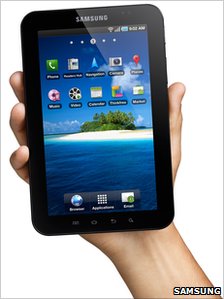This blog is by Eric T, an Engineer at Junction Networks.
It seems that every other day, if not more frequently, I read some industry website that is heralding the advent of "Unified Communications" (UC) through some new product launch. In my opinion, Unified Communications is a term so wildly lofty and vague that it brings tears of joy to marketing teams eyes when they get the chance to brandish it about in white papers and trade show slicks.
Let's take a moment to figure out what exactly Unified Communications is.
UNIFY
transitive verb : to make into a unit or a coherent whole : unite
COMMUNICATION
noun : a process by which information is exchanged between individuals This leaves much to interpretation. Many companies sell UC as systems:
- Cisco's call manager, running on a proprietary signaling system (skinny)
- Microsoft response point, also ran on some "enhanced" version of sip.
- Various Hardware vendors PBX systems: Mitel, Nortel, Avaya etc. that work only with devices they sell
These systems focus on integration of real-time communication services, offering varying features to connect users. But, they work only when all users on the system have the designated hardware and software... What, then, is being unified in this situation: Communication? Or a marketing strategy to sell more hardware? I think for something to be marketed as UC, it must work with open standards so that the focus of unification is moved from within the system, to disparate system interoperability. When this is done, it allows for implementation agnostic, A.K.A unified, interconnect and information exchange, A.K.A communication.
At OnSIP, we really do strive to make all of our components standards compliant so that we can inter-operate with as much hardware and software as is possible. This allows us to provide our customers with the most flexible set of means to communicate voice, chat, and video.  I was interested to see that Polycom has announced a partnership with Samsung to "develop standards-based video applications for the new Android-based Samsung GALAXY Tab," according to Fierce VoIP.
I was interested to see that Polycom has announced a partnership with Samsung to "develop standards-based video applications for the new Android-based Samsung GALAXY Tab," according to Fierce VoIP.
The tablet market is young still, but we have already seen other offerings, such as Cisco's "Cius" which uses proprietary "Cisco Telepresence" for HD video. This new Polycom offering could prove more successful by using open standards. What is more promising is that Polycom clearly understands open standards and is driving toward that market.
"'Unlike other mobile video applications, we believe the Polycom application will drive a network effect for users and businesses by enabling the Samsung GALAXY Tab to connect with each other, as well as other standards-based telepresence and video conferencing systems and applications,' said Sudhakar Ramakrishna, Polycom's general manager of UC Products and chief development officer" [Fierce VoIP].
I hope that we will see more and more hardware and software's breaking free of the vendor lock-in death grip. I hope that producers will recognize that you can create real value by offering high quality standards-based products. These products, combined with standards compliant integration services such as OnSIP, are the path towards true Unified Communications.

